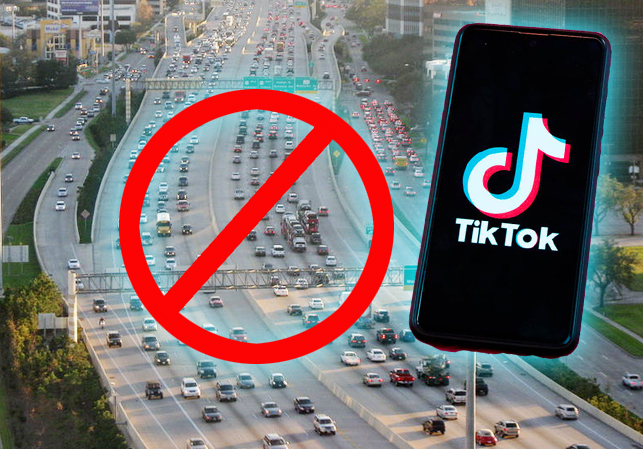Editor's note: this article originally appeared on America Walks and is republished with permission.
TikTok has found itself a new trend: deinfluencing.
GenZ is addressing financial hardships, climate, and overconsumption by embracing a new counter-culture to challenge the norms of how we have come to use social media. As we advocate in our own culture war around things like car-centric street design and highway expansions, this new trend feels very familiar.
Since early 2023, TikTok and Instagram have been inundated with viral videos of users sharing their ways of saving money and embracing minimalism by not buying things just because a person with a perfect profile aesthetic and 100,000 followers told them to. The status quo of needing to buy more, more, more isn’t working and young people are calling it out.
“There doesn’t seem to be a lot of honesty anymore [on social media], it seems like a lot of things are run through money,” one user said.
The Rise of Influencing
The word “influencer” has been in the English language since at least the 1600s. But it has taken on new meaning in the digital age of instant gratification, one-click shopping, and online aesthetics. Influencers are paid by brands to endorse products to their followers. This has transformed our shopping habits and how we consume goods.
Even with this relatively new cultural phenomenon, influencing isn’t new, in fact, it’s a fundamental part of capitalism. Auto-centric bureaucrats have been influencing us to buy bigger, faster, more deadly vehicles since the 1950s at least and DOTs and highway planners have been influencing us to want more lanes on our highways.
There’s a Medium article from 2021 titled, “Influencer Culture Is Ruining Modern Generations: If we don’t stop somewhere, things are only going to get worse.” The same sentiment can be applied to the culture of a car-centric world. Gutting the status quo is the only path forward.
The Influencers in Car Industry
The on-brand zeitgeist for the car industry has been based around essentially one idea: bigger, faster, heavier.
The most-watched televised event — the Super Bowl last night — is that industry's showcase. Viewership reaches nearly 100 million people and car companies expend billions of dollars to encourage viewers to drive fast, be tough and intimidating, and “conquer the streets of America.” Research shows that more than half of car commercials feature some form of dangerous or reckless driving.
This year’s Super Bowl was no different as it’s one of the best marketing opportunities to influence consumers. It has become a normalized part of our culture that as new cars hit the market, they are advertised as thrilling, swift, and sleek – which as stated above – often translates into bigger, faster, and heavier.
Deinfluencing Highways
Highways and never-ending highway expansions are another big, bad machine we have been conditioned to believe we need more of. We’ve been influenced to believe highways are a necessity and keep us productively fueling American capitalism when in reality highways feel like the machine that Rage Against the Machine rages against.
It’s not even a fringe idea anymore that highway expansions don’t improve or alleviate traffic (I mean, outlets as mainstream as the New York Times are writing about it). But yet, many Americans are still in favor of highway expansion because they think it will cut down on their commute time to work or lighten traffic so they can get their kids to basketball practice on time.
So where is the disconnect?
The auto industry, unions, contractors, and even some politicians and state DOTs want to keep expanding, even with a thorough understanding of induced demand and the associated health and environmental risks, because it’s financially advantageous.
So what do they do?
Keep the public confused. Influence public opinion by misleading them into thinking adding lanes will cut down on traffic. And there are no consequences for these negligent actions. Even someone as influential as Elon Musk, yes the CEO of one of the most popular social media sites (that has a lot of influencing power) is pro-highway expansion. Because, well, he is the CEO of one of the most popular car manufacturers.
Deinfluencing these marketing machines that have been feeding a very curated and specific narrative (the elusive “American Dream”) to the public since the 1950s should be more than just a trend on TikTok. We need a complete overhaul, a seismic shift of the psyche of the American consumer, to reject a bottom line to just move faster and do things bigger. That mentality is why we continue to be on the front lines fighting highway expansions and pushing for smaller, slower, safer vehicles for pedestrians through the channels of local advocacy and public policy. Calling it an uphill battle is an understatement, especially with so much opposition still, even in 2023. But is there reason to feel hopeful? Yes. We are here to *deinfluence* you.
Kait Spielmaker is the communications manager of America Walks and lives in Portland, Oregon.







